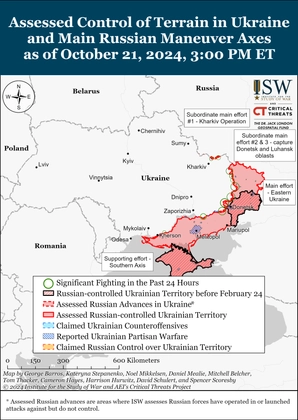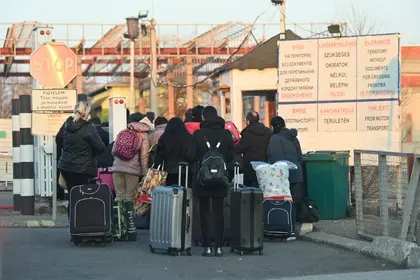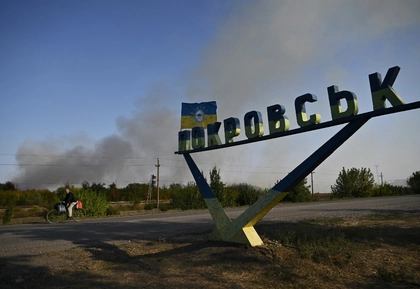Human capital is the most powerful weapon for rebuilding Ukraine. After a year of war, the country has lost its most powerful economic asset – its people. Statistics say that from the beginning of the full-scale invasion, the nation has lost 14.5 million people to EU economies. The risk of non-return is very real, and several factors will negatively affect the Ukrainian economy if reforms are not made to entice its citizens back to their homeland.
Research done by the Center for Economic Strategy presented a portrait of an average Ukrainian refugee and how they live abroad now. The report shows that of women between the age of 35 - 49 who left the country, 66 percent of them have a higher education. Poland accepted a record number of Ukrainian refugees at 38.4 percent. Other counties’ statistics are: Germany – 19.5 percent, Czech Republic – 12.0 percent, and Italy 5.6 percent.
JOIN US ON TELEGRAM
Follow our coverage of the war on the @Kyivpost_official.
The existing risk of a non-return demographic crisis and a ‘lost generation’ for Ukraine has already begun. This has negatively affected the Ukrainian economy, while positively affecting the situation in the EU. The situation there is the opposite: rapid market demand was shown in 2022 and this has supported GDP growth for them.
To bring people back to their homeland, reforms should be initiated now. The National Bank of Ukraine in partnership with the Ministry of Social Politics and the Ministry of Economy called for programs encouraging return to be a top priority for Kyiv’s political establishment.

ISW Russian Offensive Campaign Assessment, October, 22, 2024
Ukraine must convince its diaspora that there will be a fast post-war recovery and a thriving market of career possibilities.
“We must work together with experts and governmental institutions for returning programs. Our citizens need to be assured they have a place to go back to. They must feel needed in Ukraine. Of course, the process of assimilation has already been happening for a year. Children learning languages, going to school making new friends,” stated Andriy Pyshny, the chief of the national Bank of Ukraine (NBU).
The topic of migrants should be solidified and set into specific timelines, plans and proposals. The typical profile for Ukrainian refugees is different from other migrants such as the Syrian refugee wave of 2015 where most were displaced young men. In Ukraine’s situation a large percentage are young Ukrainian women who have a degree, which gives more advantages in employment and career options. Thus, even if in the beginning host countries faced a load on state systems - medical, housing, employment support, etc., in a long-term perspective adaptation of Ukrainian refugees and integration into labor markets will play a beneficial role for the host nation’s economy.
“In some countries, the presence of Ukrainian refugees helped avoid recession, and migration stimulated consumer markets, a deficit of work coverage labor capital which arose in EU,” Pyshny said.
“We have evaluated the short fiscal load effect on countries of EU 37 billion euro. The cost is large enough, but it is only 0.2- 0.23 % of the Gross Domestic Product of the European Union, a short-term effect. But in the long-term, the presence of new labor and increased consumer markets will have a positive effect.
“Assimilation of Ukrainians in host countries can help to build an effective environment and benefit society. European Central Bank estimates participation rate of Ukraine migrants in the workforce will be from 25% to 55% in the middle term perspective. EU work zones have increased from 0.2 to 0.8 percent. Estimates are from 300,000 to 1,300,000 people.”
One of the possible agreements between the EU and Ukraine involves creating an open labor market, where people could make their own choice: stay in Ukraine or return back to their wartime host country. The Center of Economic Strategy explains that opening labor options in the EU after victory can provide more ‘safety nets’ for those who couldn’t adapt in the post-war country.
“If people know that they have a chance to come back to Europe after their temporary protection terminated, they will be less afraid of coming back to Ukraine,” said Daryna Mykhailyshyna, councilor of the CES and postgraduate student at the University of Bologna.
The more people return the faster Ukraine’s economic rise. But the focus should be on housing, recovered infrastructures and enough jobs to feed the family. A vulnerable group of people who lost everything need help with job searches and life in safer regions.
“We see how the EU finances retraining programs for Ukrainian refugees so they can adapt to the labor market. With similar programs here we can achieve a higher employment rate”, concludes the researcher.
“Entrepreneur flexibility and digitalization”
The Ministry of Economy of Ukraine estimates the unemployment rate as high. In 2022 there were 2.6 million people not working compared to 1.7 million in 2021. Unemployment has increased by one million, out of 12 million who remained working in Ukraine.
“We have our prognoses, where we calculate that 75 percent of those who had to flee from the war will be back. For the Ministry of Economy, it is important to provide decent living and working conditions,” said Oleksiy Sobolev, Deputy Minister of Economy of Ukraine for Digital Development, Transformations and Digitalization.
”Programs such as ‘EWork’ and ‘EHelp’ are already in progress, and future agreements with foreign investors can encourage entrepreneurs to open more businesses and workplaces. We hypothesize that sustainable business development can rise with government credits and grants, where people see ‘entrepreneurs’ freedom and flexibility’.”
The deregulation project the ministry is leading can solve problems with employment in problematic regions. This will lead to easier retrieval of certificates required by directives of the EU automation, digitalization and simplification of business mechanisms.
Qualified and educated migrants are unlikely to return
For Ukrainians who have already set themselves up abroad, it will seem questionable whether it would be worth repeating the process to return home. Experts agree that cooperation with the EU on bringing people back could be a politically sensitive step. Another demographic crisis that Ukraine can expect by the end of this year has already been realized in the birth rate statistics. The fertility rate is projected at 0.8 per woman, with a normal reproduction of 2:2, to maintain the current population level in Ukraine.
“We should not have an overly optimistic prognosis; I think we can start to prepare for a worst-case scenario,” commented Ella Libanova, director of the Institute of Demography and Social Research of the National Academy of Sciences .
“I have doubts about opening the EU market after the war. The example of two Baltic states shows us that upon joining the EU market half the working population of Estonia moved out of the country, with a comparable situation in Latvia. Let's not forget that when young people leave, the older generation still needs to be paid their pensions and provided medical and social services. We must calculate the results in terms of overall demographic consequences – here the plusses may be less than the minuses”
There is significant risk that young specialists may fit themselves into big corporations and become satisfied with work abroad. unlikely coming through the same difficulties and uncertainty once more. Qualifying refugees, women and their children who study at schools and universities receive not just a path to the future, but also gain privileged access to the labor market.
“The development and restoration of the affected regions are obvious. But before we need to think about how to protect the country from the next aggressive steps,” Ella Libanova added.
“Unfortunately Russia will not go anywhere. We must understand that. Even with large-scale, rapid creation of jobs, huge structural unemployment is inevitable, at least for the first year or two. Of course, there will be a large demand for construction workers.
“But we have always had problems in that area. And while attracting foreigners could help give a quick boost to the economy, it is not a solution for getting migrants to return home.”
Libanova continued: “And what about families who want to be reunited after the war? We should not forget there is a potential risk that this reunification may not take place in Ukraine. And, in addition to qualified young women, we will lose as many enterprising young men.”
“Internal migration in Ukraine has also taken place. Nowadays, people are concentrated in those regions where there are no jobs, and they will not be after the war. For Ukraine, it is not only important to deal with external migration, but with internal migration as well.
“We need to think about relocating people to places where we can provide them with work. Our own experience in 2014-2015 cannot be repeated, it cannot be as the experience of Abkhazia. We don't have enough people to have our leaders and working hands scattered without some organized plan. Plus, it is also dangerous in terms of the criminal and social situation. So, I would like us to cooperate with the ministries of Ukraine regarding the distribution of both internal and external refugees. It seems to me that it we should look at the whole complex matter systematically.” Libanova concluded:
“A well-balanced territorial policy in Ukraine can solve the problem also with the category of people in the west of Ukraine left under the banner of ‘refugees from the war - those who took advantage of opportunities to move abroad and legally obtain documents.”
So how long could it really take?
Ukrainians will be in the European labor market for longer than two or three years. Europe isn't necessarily wanting Ukrainians to return home, especially the young and qualified refugees who make up the majority.
“Here we can consider the experience of former Yugoslavia when, after the end of temporary protection, those who did not have good employment returned home,” says Maryna Tverdostup, economist of The Vienna Institute for International Economic Studies.
“But those who managed to build a good career also kept coming back for 10 years. That is, it is a slow process, depends on many factors, such as the rapid reconstruction of Ukraine and the conditions of stay abroad.”
“Cooperation with the EU should be a bilateral process, where all risks and opportunities on both sides will be considered. The worst can be imagined if EU countries try to keep migrants, and Ukraine tries to get them to return.”
Tverdostup continued: “Additional education, training and advanced courses to acquire new skills must be deployed and financed in the EU. Thus, human capital will be integrated into wealth for the benefit of the recipient country. If that doesn't happen, the majority joins the marginal workforce for minimum wage. So, it is necessary to take the maximum steps of integration into the market.
“In Austria, for example, almost every day you read terrible news about the exploitation of Ukrainian migrants in inhumane conditions.”
Several foreign researchers have given positive assessments of the situation with Ukrainian migrants. But the full development of long-term plans for the return of citizens will require one thing first - a quick end to the war.
You can also highlight the text and press Ctrl + Enter






